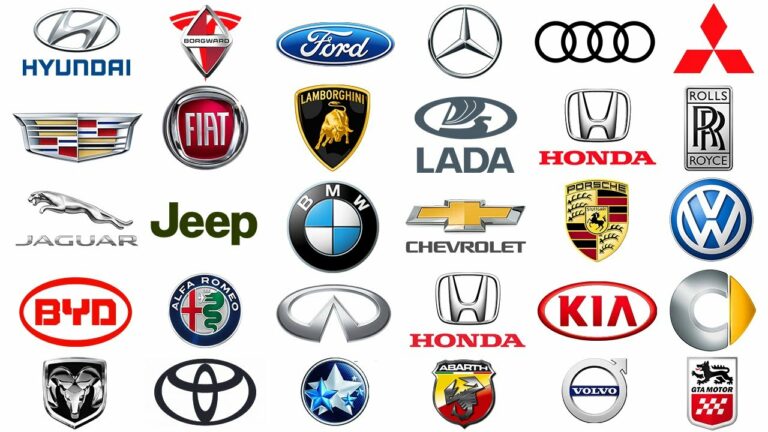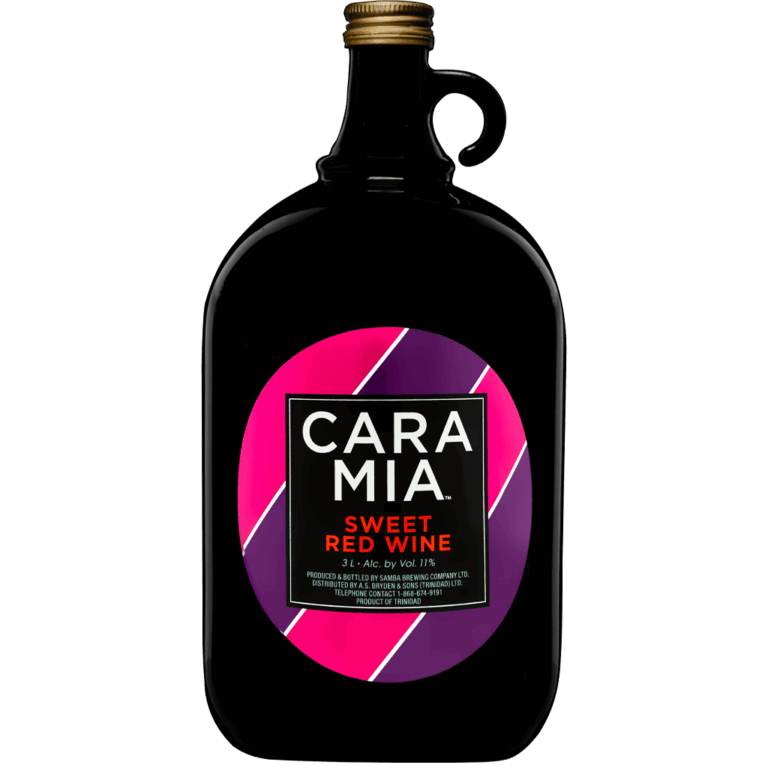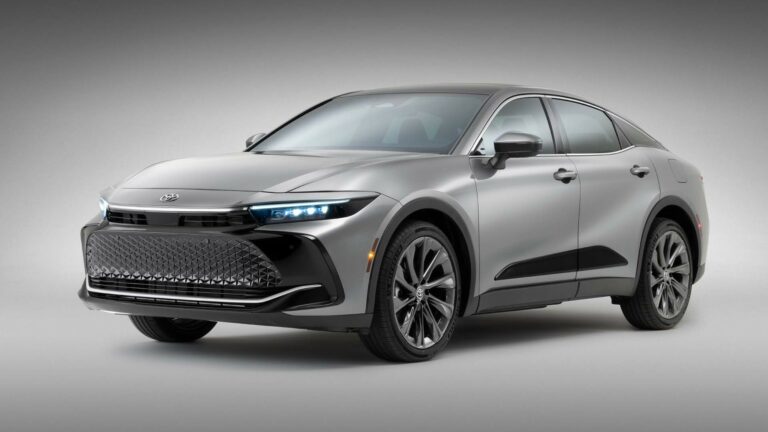The Best Car Tire Brands: Navigating the Road to Optimal Performance and Safety
The Best Car Tire Brands: Navigating the Road to Optimal Performance and Safety cars.truckstrend.com
In the intricate symphony of a car’s mechanics, tires often play the unsung hero. More than just black rubber circles, they are the sole point of contact between your vehicle and the road, profoundly influencing everything from safety and fuel efficiency to handling, comfort, and braking performance. Choosing the "best" car tire brand isn’t merely about picking a name; it’s about making an informed decision that directly impacts your driving experience and, crucially, your safety.
This comprehensive guide will delve into what defines a superior tire brand, highlight the industry’s leading players, and provide actionable advice to help you select the perfect set of tires for your vehicle and driving needs. Understanding the nuances of tire technology and brand offerings is an investment in your peace of mind and the longevity of your ride.
The Best Car Tire Brands: Navigating the Road to Optimal Performance and Safety
Decoding Tire Excellence: What Makes a Brand "Best"?
Before diving into specific brands, it’s essential to understand the criteria that elevate a tire manufacturer to the "best" category. Superior tire brands consistently excel in several key areas:
- Research & Development (R&D) and Innovation: Leading brands invest heavily in R&D to develop advanced rubber compounds, innovative tread patterns, and robust construction technologies. This leads to breakthroughs in grip, wear resistance, fuel efficiency, and noise reduction.
- Performance Metrics: The best tires demonstrate exceptional performance across various parameters:
- Wet & Dry Grip: Crucial for safety, especially in adverse weather.
- Braking Distance: Shorter stopping distances are paramount.
- Handling & Responsiveness: How well the tire translates steering input into vehicle movement.
- Comfort & Noise Reduction: A smoother, quieter ride.
- Fuel Efficiency: Lower rolling resistance can save fuel.
- Treadwear & Longevity: How long the tire lasts under normal driving conditions.

- Reputation and Reliability: Years of consistent quality, positive consumer reviews, and endorsements from vehicle manufacturers (Original Equipment or OE tires) build a brand’s reputation for reliability.
- Product Range & Specialization: Top brands offer a diverse portfolio, catering to various vehicle types (sedans, SUVs, trucks, sports cars) and driving conditions (all-season, summer, winter, performance, off-road).
- Warranty and Customer Support: Strong warranties (e.g., treadwear warranties, road hazard protection) and accessible customer service indicate a brand’s confidence in its products.

The Titans of Traction: A Deep Dive into Top-Tier Tire Brands

When discussing the "best," certain names consistently rise to the top, synonymous with innovation, performance, and reliability. These brands often come with a premium price tag, but the investment typically pays dividends in safety, longevity, and driving pleasure.
- Michelin: A global leader, Michelin is renowned for its cutting-edge technology, exceptional longevity, and superior performance across all categories. They are pioneers in fuel-efficient tires (Green X technology) and offer a wide range from ultra-high performance to comfortable touring tires. Michelin tires often provide a superb balance of grip, quietness, and extended tread life.
- Goodyear: An iconic American brand, Goodyear offers a vast array of tires for every vehicle type and driving need. Known for their strong all-season capabilities and robust construction, Goodyear tires often feature innovative technologies like SilentArmor for durability or TredLock for enhanced traction. They strike a good balance between performance, durability, and value.
- Bridgestone: As the world’s largest tire and rubber company, Bridgestone delivers high-quality tires with a focus on durability, performance, and fuel efficiency. Their Potenza line is popular for performance vehicles, while the Turanza and Ecopia lines cater to touring and eco-friendly needs, respectively. Bridgestone is a frequent OE supplier for many car manufacturers, attesting to their consistent quality.
- Continental: A German engineering powerhouse, Continental excels in safety, comfort, and fuel efficiency. Their tires are often praised for their excellent wet braking performance, quiet ride, and precise handling. Continental’s ExtremeContact and PureContact lines are highly regarded for their all-season and performance capabilities, often featuring technologies like ContiSilent for noise reduction.
- Pirelli: Synonymous with high-performance and luxury vehicles, Pirelli is the go-to brand for sports cars and enthusiasts. Their tires offer exceptional grip, precise handling, and aggressive styling. While often prioritizing performance over longevity, Pirelli’s P Zero line is a benchmark for ultra-high performance, delivering thrilling driving dynamics.
- BFGoodrich: A subsidiary of Michelin, BFGoodrich has carved out a niche for its robust, durable, and high-performance tires, particularly in the truck, SUV, and off-road segments. Their All-Terrain T/A KO2 is legendary among off-road enthusiasts for its ruggedness and exceptional traction in challenging conditions. They also offer excellent performance tires for passenger cars.
Smart Choices: Excellent Value from Mid-Range Brands
While the premium brands offer top-tier performance, several mid-range brands provide an excellent balance of quality, performance, and affordability, making them a smart choice for many drivers.
- Hankook: A South Korean brand that has rapidly gained global recognition for its quality and innovative designs. Hankook tires offer a compelling blend of performance, comfort, and value across their diverse product lines, from ultra-high performance (Ventus) to comfortable touring (Kinergy).
- Yokohama: A Japanese brand known for its sporty performance and strong wet grip. Yokohama offers a wide range of tires, with their ADVAN line catering to performance enthusiasts and their Avid line providing solid all-season capabilities. They often deliver a responsive driving feel.
- Falken: Another Japanese brand, Falken is recognized for its aggressive styling and performance-oriented tires, particularly popular in the aftermarket and tuning communities. They offer good dry grip and responsive handling, often at a more accessible price point than premium performance brands.
- Cooper Tires: An American brand with a strong focus on durability and value. Cooper produces a wide range of tires, especially popular for trucks and SUVs, offering robust construction and good treadwear warranties. They are a reliable choice for everyday driving and light off-roading.
Navigating the Options: How to Choose the Best Tires for YOU
Selecting the "best" tire isn’t just about brand reputation; it’s about matching the tire to your specific needs and driving conditions.
-
Your Vehicle Type:
- Sedans/Coupes: Often benefit from touring tires for comfort and longevity, or performance tires for a sportier feel.
- SUVs/Crossovers: May need tires designed for heavier loads and potentially light off-road use, balancing comfort with durability.
- Trucks: Require tires with higher load capacities and often aggressive tread patterns for work or off-road adventures.
- Sports Cars: Demand ultra-high performance tires with maximum grip for spirited driving.
-
Your Driving Style:
- Aggressive/Enthusiast: Prioritize grip, handling, and responsiveness.
- Commuter: Focus on comfort, quietness, longevity, and fuel efficiency.
- Off-Road: Look for robust construction and aggressive tread for traction in dirt, mud, or rocks.
-
Your Climate:
- All-Season Tires: Designed for year-round use in moderate climates, offering a compromise between summer and winter performance. They are convenient but not optimal for extreme conditions.
- Summer Tires: Optimized for warm weather, offering superior dry and wet grip due to softer compounds and specialized tread patterns. They harden in cold temperatures, losing effectiveness.
- Winter Tires: Essential for regions with snow and ice. They feature softer rubber compounds (to remain flexible in cold) and aggressive tread patterns (with sipes) for maximum traction on slippery surfaces.
-
Understanding Tire Specifications:
- Treadwear Rating: Indicates the tire’s expected longevity (higher number = longer life).
- Traction Rating (A, B, C): Measures the tire’s ability to stop on wet pavement (AA is best).
- Temperature Rating (A, B, C): Indicates the tire’s resistance to heat buildup (A is best).
- Speed Rating (e.g., S, T, H, V, W, Y, Z): The maximum safe speed the tire can sustain (higher letter = higher speed). Match this to your vehicle’s requirements.
- Tire Size: Found on the tire sidewall or in your car’s manual (e.g., P205/55R16). Always use the correct size.
-
Budget Considerations: While premium brands offer superior performance, mid-range options provide excellent value. Avoid excessively cheap, unknown brands, as they often compromise on safety and longevity. Think of tires as a critical safety investment, not just an expense.
Beyond Purchase: Maximizing Your Tire Investment
Even the best tires won’t perform optimally or last long without proper care.
- Regular Inflation: Check tire pressure monthly. Under-inflated tires reduce fuel economy, wear unevenly, and pose a safety risk.
- Tire Rotation: Rotate your tires every 5,000-8,000 miles to ensure even wear across all four tires.
- Wheel Balancing: Re-balance tires if you notice vibrations, especially after a tire repair.
- Wheel Alignment: Have your alignment checked annually or if you hit a major pothole, to prevent uneven tire wear.
- Tread Depth: Replace tires when the tread depth reaches 2/32nds of an inch (indicated by wear bars).
- Tire Age: Even with good tread, tires degrade over time. Most manufacturers recommend replacing tires every 6-10 years, regardless of mileage.
Estimated Price Tiers for Top Car Tire Brands
It’s important to note that tire prices vary significantly based on size, type (all-season, performance, etc.), retailer, and region. The table below provides general estimated price tiers for a typical passenger vehicle tire (e.g., 17-inch all-season) to give you a comparative idea.
| Tire Brand | Key Strengths | Estimated Price Tier (per tire) | Common OE Fitments |
|---|---|---|---|
| Michelin | Longevity, Comfort, Fuel Efficiency, Premium Performance | $180 – $350+ | BMW, Mercedes, Porsche, Audi, Honda |
| Goodyear | All-Season Performance, Durability, Diverse Range | $150 – $300 | Ford, Chevrolet, Chrysler, Toyota |
| Bridgestone | Durability, Balanced Performance, OE Supplier | $160 – $320 | Toyota, Honda, Subaru, Nissan |
| Continental | Safety, Wet Grip, Quiet Ride, German Engineering | $160 – $300 | Mercedes, BMW, Volkswagen, Ford |
| Pirelli | High-Performance, Luxury Vehicles, Exceptional Grip | $190 – $400+ | Ferrari, Lamborghini, Porsche, Audi |
| BFGoodrich | Off-Road Capability, Durability, Performance (Trucks) | $140 – $280 | Jeep, Ford, Chevrolet (trucks/SUVs) |
| Hankook | Good Value, Balanced Performance, Modern Technology | $120 – $220 | Hyundai, Kia, Volkswagen, Ford |
| Yokohama | Sporty Handling, Wet Grip, Value | $120 – $230 | Subaru, Honda, Mazda |
| Falken | Performance-Oriented, Aggressive Styling, Value | $110 – $210 | Subaru, Mazda, Some light trucks |
| Cooper Tires | Durability, Good Warranties, Truck/SUV Focus, Value | $100 – $200 | Ford, Ram, Jeep (aftermarket/replacement) |
Note: Prices are estimates and can vary wildly based on tire size, type, and specific model.
Frequently Asked Questions (FAQ)
Q1: How often should I replace my car tires?
A1: Generally, most manufacturers recommend replacing tires every 6 to 10 years, regardless of tread depth, as rubber degrades over time. You should replace them sooner if the tread depth reaches 2/32nds of an inch (check using the "penny test" or built-in wear bars), or if there are visible signs of damage like cracks, bulges, or punctures that cannot be safely repaired.
Q2: What do the numbers and letters on my tire sidewall mean?
A2: These codes provide crucial information:
- P205/55R16 91H:
- P: Passenger car tire.
- 205: Tire width in millimeters.
- 55: Aspect ratio (sidewall height as a percentage of width).
- R: Radial construction.
- 16: Rim diameter in inches.
- 91: Load index (maximum weight the tire can carry).
- H: Speed rating (maximum safe speed the tire can sustain).
Q3: Are cheaper tires always a bad idea?
A3: Not always, but caution is advised. While budget brands might offer initial savings, they often compromise on performance, longevity, noise, and safety features compared to reputable mid-range or premium brands. For critical components like tires, investing in a known, quality brand is generally recommended for safety and long-term value.
Q4: How can I make my tires last longer?
A4: Proper maintenance is key:
- Maintain correct tire pressure.
- Rotate tires every 5,000-8,000 miles.
- Ensure wheels are balanced and aligned correctly.
- Avoid aggressive driving (hard braking, rapid acceleration, sharp turns).
- Avoid driving over potholes and curbs whenever possible.
Q5: Do I need different tires for winter if I live in a snowy area?
A5: Yes, absolutely. All-season tires offer a compromise and are not ideal for true winter conditions (temperatures consistently below 45°F / 7°C, snow, ice). Dedicated winter tires have softer rubber compounds that remain flexible in cold temperatures and specialized tread patterns with sipes that provide superior grip on snow and ice, significantly improving safety and control.
Conclusion
Choosing the best car tire brand is a pivotal decision that impacts every aspect of your driving experience. It’s a balance between safety, performance, comfort, and cost. By understanding what makes a tire brand excel, exploring the offerings of leading manufacturers, and carefully considering your own vehicle and driving habits, you can make an informed choice. Remember, tires are not just an accessory; they are a critical safety component and a key determinant of your vehicle’s overall performance. Investing wisely in quality tires from a reputable brand is an investment in your safety and driving enjoyment for miles to come.






